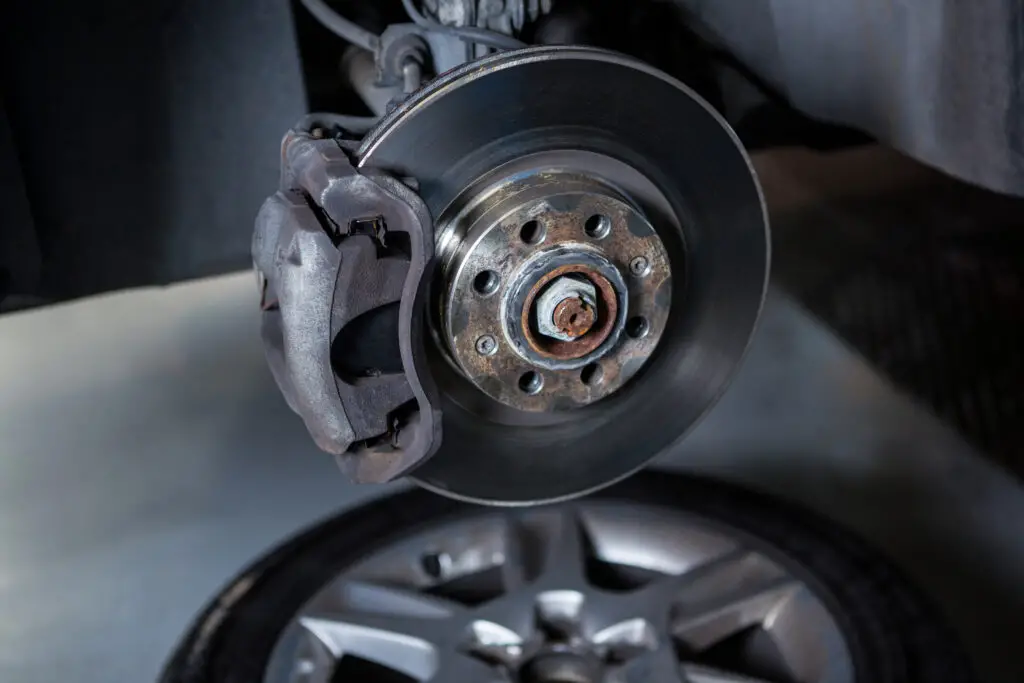Brake calipers are one of the most important components in a vehicle’s braking system, responsible for clamping the brake pads against the rotor to slow down or stop the vehicle. Their function is simple yet crucial for safety. Understanding how brake calipers work can help you appreciate the importance of regular maintenance and why you may experience braking issues over time.
What Are Brake Calipers?
Brake calipers are a part of the disc braking system, commonly found in modern cars. A typical disc braking system includes brake pads, rotors, and calipers. The caliper houses the brake pads and pistons and fits over the rotor, a metal disc attached to each wheel.
There are two types of brake calipers: floating calipers and fixed calipers. Floating calipers have pistons only on one side and move in and out as they press the pads against the rotor. Fixed calipers, on the other hand, have pistons on both sides of the rotor, which allows for more even pressure distribution but makes them more complex and expensive.
The Role of Hydraulic Pressure
Brake calipers rely on hydraulic pressure to function. When you press the brake pedal, brake fluid is forced through the brake lines into the calipers. This fluid pressure pushes the pistons inside the caliper outward. As the pistons extend, they force the brake pads to squeeze against the spinning rotor, creating friction and slowing the car down.
The hydraulic system is designed to multiply the force from your foot pressing the brake pedal, meaning you don’t need to exert a lot of pressure to bring a heavy vehicle to a stop.
How Pistons and Brake Pads Work Together
Pistons inside the caliper are the key to the braking process. When hydraulic pressure is applied, these pistons extend out of their bore, pushing the brake pads against the rotor. The more pistons a caliper has, the more evenly the pressure is distributed across the brake pad.

High-performance vehicles often use multi-piston calipers for better braking performance. As the pistons retract when you release the brake pedal, the brake pads move away from the rotor, allowing the wheel to spin freely again.
Heat and Brake Fade
Friction between the brake pads and rotor generates a significant amount of heat. Over time, this heat can lead to brake fade, where the effectiveness of your brakes diminishes. This is especially common in vehicles driven in mountainous terrain or for performance driving. The heat buildup can also affect the brake fluid, potentially causing it to boil and reduce hydraulic pressure, leading to less effective braking.
High-performance brake systems often include vented rotors or use materials like carbon-ceramic to manage heat more effectively. Regular maintenance, such as changing brake fluid and inspecting calipers, can help mitigate heat-related issues.
Signs of Brake Caliper Issues
Like all mechanical components, brake calipers can wear down over time. Common signs of brake caliper issues include:
- Uneven brake pad wear: If one brake pad wears down faster than the other, it could indicate a sticking caliper.
- Pulling to one side: A malfunctioning caliper can cause the vehicle to pull to one side when braking.
- Leaking brake fluid: Brake fluid near your wheels can indicate a damaged caliper.
- Reduced braking performance: Longer stopping distances or a soft brake pedal could mean your caliper isn’t applying pressure correctly.
Final Thoughts
To keep things simple, brake calipers are essential for controlling your vehicle’s speed and ensuring safe stops. Understanding how they work, and recognizing signs of wear and tear, can help keep your braking system in top condition. Regular maintenance of your brake calipers and the overall braking system ensures smooth, safe driving and prevents expensive repairs down the line.
Discover more from Chikwem
Subscribe to get the latest posts sent to your email.